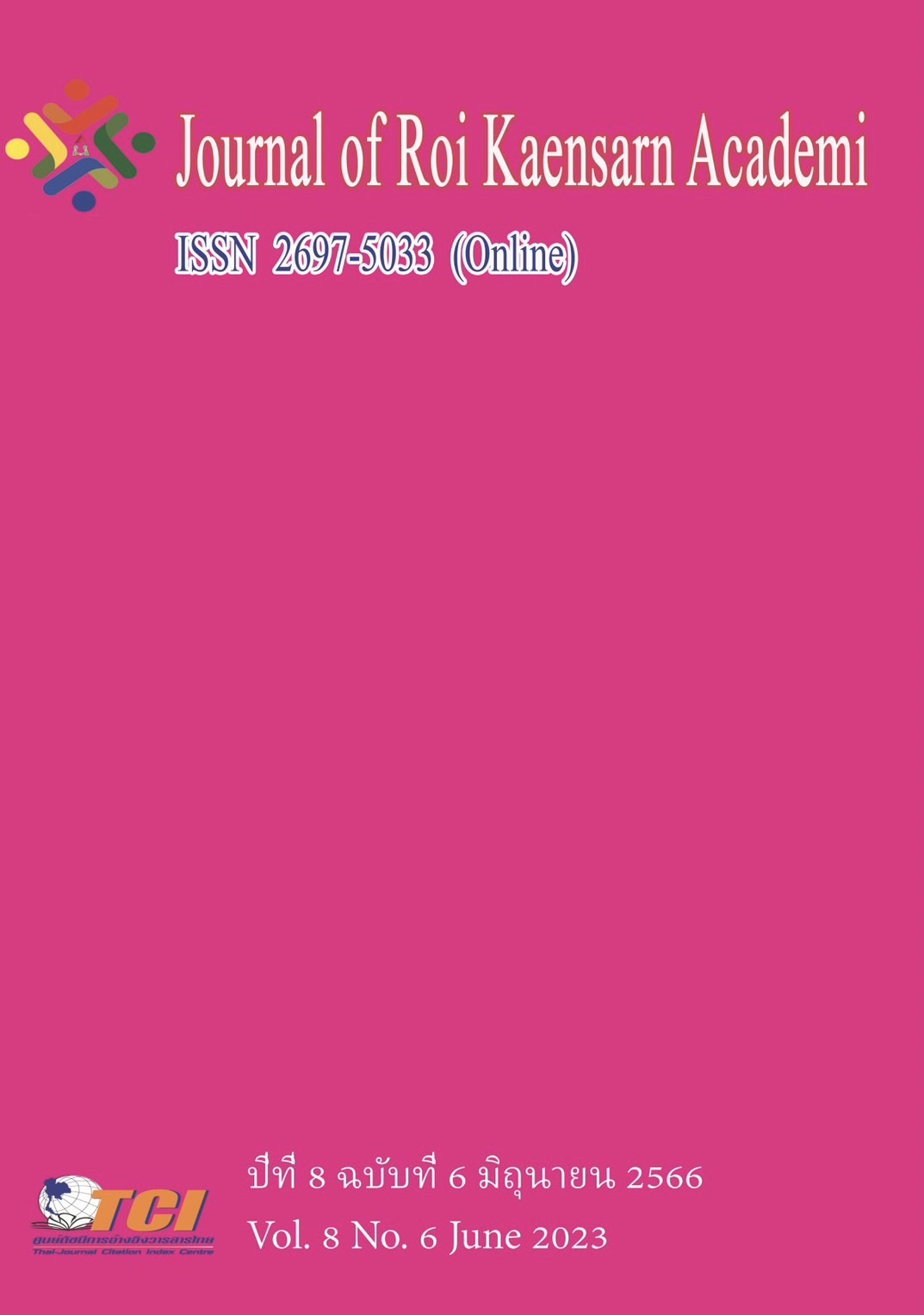ปัจจัยที่กำหนดความสัมพันธ์ของการถือครองเงินสดและผลการดำเนินงานของบริษัท จดทะเบียนในตลาดหลักทรัพย์แห่งประเทศไทย
Main Article Content
บทคัดย่อ
การวิจัยนี้มีวัตถุประสงค์เพื่อศึกษาปัจจัยที่กำหนดการถือครองเงินสด และความสัมพันธ์ของการถือครองเงินสดกับผลการดำเนินงานของบริษัทจดทะเบียนในตลาดหลักทรัพย์แห่งประเทศไทย งานวิจัยนี้เป็นการวิจัยเชิงปริมาณ รวบรวมข้อมูลจากกลุ่มตัวอย่างบริษัทจดทะเบียนในตลาดหลักทรัพย์แห่งประเทศไทยตั้งแต่
ปี พ.ศ. 2551 – 2562 จำนวน 301 บริษัท รวมทั้งสิ้น 3,612 ตัวอย่าง ใช้การวิเคราะห์ข้อมูลพาแนลในการวิเคราะห์และทดสอบสมมติฐานวิจัย
ผลการวิจัยพบว่าปัจจัยด้านคุณลักษณะกิจการมีความสัมพันธ์กับการถือครองเงินสดโดยกระแสเงินสดและโอกาสในการลงทุนมีความสัมพันธ์ในทิศทางเดียวกับการถือครองเงินสด ในขณะที่ระดับหนี้สินและการจ่ายเงินปันผลมีความสัมพันธ์ในทิศทางตรงกันข้าม เมื่อพิจารณาปัจจัยด้านการกำกับดูแลกิจการ พบว่าบริษัทที่มีโครงสร้างกรรมการควบตำแหน่งประธานกรรมการและคณะกรรมการบริษัทมีการถือครองเงินสดมาก และบริษัทที่มีการลงทุนโดยนักลงทุนสถาบันจะมีการถือครองเงินสดน้อย นอกจากนั้นผลการวิจัยยังพบว่าการถือครองเงินสดมีผลต่อผลการดำเนินงานของกิจการตามการวัดผลทางการบัญชีและการวัดผลทางการตลาด การวิจัยนี้ช่วยให้บริษัทตระหนักถึงความสำคัญของการถือครองเงินสด เพื่อให้บริษัทมีสภาพคล่องทางการเงินสร้างผลตอบแทนให้กับผู้ถือหุ้นและเพิ่มมูลค่าของกิจการ
Article Details
เอกสารอ้างอิง
จิรัชญา บุญช่วย, กรรณิกา บัวทองเรือง, และศิววงศ์ เพชรจุล. (2559). ความสัมพันธ์ระหว่างการถือเงินสดกับการปรับกำไร: กรณีศึกษากลุ่มเกษตรและอุตสาหกรรมอาหาร. ประชุมวิชาการมหาวิทยาลัยเทคโนโลยี สาขาเศรษฐศาสตร์และบริหารธุรกิจ. หน้า 344 – 349.
สภาวิชาชีพบัญชี ในพระบรมราชูปถัมภ์. (2563). เรื่อง มาตรการผ่อนปรนชั่วคราวสำหรับทางเลือกเพิ่มเติมทางบัญชีเพื่อรองรับผลกระทบจากสถานการณ์การแพร่ระบาดของโรงติดเชื้อไวรัสโคโร่นา 2019 (COVID-10). ประกาศสภาวิชาชีพบัญชี ที่ 16/2563 ประกาศ ณ วันที่ 16 เมษายน พ.ศ. 2563. หน้า 1 – 5.
Abushammala S. NM., and Sulaiman J. (2014). Cash holdings and Corporate Profitability: Some Evidences from Jordan. International Journal of Innovation and Applied Studies, (8) 3, 898 - 907
Ali A., and Yousaf S. (2013). Determinants of Cash holdings in German Market. Journal of Business and Management, (12) 6, 28 – 34.
Al-Najjar B. (2013). The financial determinants of corporate cash holdings: Evidence from some emerging markets. International Business Review. (22), 77–88.
Ameer R. (2012). Impact of cash holdings and ownership concentration on firm valuation: Empirical evidence from Australia. Review of Accounting and Finance. (11) 4, 448–467.
Asante-Darko D., Adu B., Samuel F., Amoako K., and Yayra G. (2018). Governance structures, cash holdings and firm value on the Ghana Stock Exchange. Corporate Governance. (18) 4. 671 – 685.
Azmat Q. (2014). Firm value and optimal cash level: evidence from Pakistan. International Journal of Emerging Markets. (9) 4, 488-504.
Bates T. W., Kahle K. M., and Stulz R. M. (2009). Why do U.S. firms hold so much more cash than they used to? Journal of Finance. (64) 5, 1985-2021.
Boubaker S., Derouiche I., and Nguyen K. D. (2015). Does the board of directors affect cash holdings? A Study of French listed firm. Journal Management Governance. (19), 341– 370.
Boyle G. W. and Guthrie G. A. (2003). Investment, uncertainty, and liquidity. Journal of finance. (58), 2143-2166.
Chireka t., and Fakoya M. B. (2017). The determinants of corporate cash holdings levels: evidence from selected South African retail firms. Investment Management and Financial innovations. (14) 2, 79-93.
Choi I. (2001). Unit root tests for panel data. Journal of international money and finance. (20) 2, 249–272.
Dittmar A. and Mahrt-Smith J. (2007). Corporate governance and the value of cash holdings. Journal of Financial Economics. (83), 599–634.
D'Mello R., Krishnaswami S., and Larkin P. J. (2008). Determinants of corporate cash holdings: evidence from spin-offs. Journal of Banking and Finance. (32), 1209–1220.
Dowling G. (2006). In Practice How Good Corporate Reputations Create Corporate Value. Corporate Reputation Review. (9) 2, 134–143.
Drobetz W., and Gruninger M. C. (2007). Corporate cash holdings: Evidence from Switzerland. Financial Markets and Portfolio Management. (21) 3, 293-324.
Fresard L. (2010). Financial Strength and product market behavior: The real effects of corporate cash holdings. The Journal of finance, (64) 3, 1097–1122.
Frodsham D., and Liechtenstein H. (2011). Chapter 8 Valuing a company. Getting Between the Balance Sheets the Four Things Every Entrepreneur Should Know About Finance. Published 2011 by PALGRAVE MACMILLAN. pp. 109.
Froot K. A., Scharfstein D. S., and Stein J. C. (1993). Risk Management: Coordinating Corporate Investment and Financing Policies. The Journal of Finance, (48) 5, 1629–1658.
Harford J., Mansi S. A., and Maxwell W. F. (2008). Corporate governance and firm cash holdings in US. Journal of Financial Economics, (87) 3, 535–555.
Huang P., Guo J., Ma T., and Zhang Y. (2015). Does the value of cash holdings deteriorate or improve with material weaknesses in internal control over financial reporting? Journal of Banking & Finance, (54), 30-45.
Isshaq Z., Bokpin G. A., and Onumah J. M. (2009). Corporate governance, ownership structure, cash holdings, and firm value on the Ghana Stock Exchange. The Journal of Risk Finance, (10) 5, 488-499.
Jensen M. C. (1986). Agency Costs of Free Cash Flow, Corporate Finance, and Takeovers.
The American Economic Review, (76) 2, 323–329.
Jensen M. C. and Meckling W. H. (1976). Theory of the firm: Managerial behavior, agency costs and ownership structure. Journal of Financial Economic. (3), 305–360.
Kim J., Kim H., and Woo D. (2011). Determinants of corporate cash-holding levels: An empirical examination of the restaurant industry. International Journal of Hospitality Management, (30), 568-574.
Koller T., Goedhart M., and Wessels D. (1990). Valuation: measuring and managing the value of companies. Fifth edition. (University edition). Published by John Wiley & Sons, Inc., Copyright 1990. 3 – 15.
Kuan T., Li C., and Liu C. (2012). Corporate governance and cash holdings: A Quantile regression approach. International Review of Economics & Finance, (24), 303–314.
Kusnadi Y. (2011). Do corporate governance mechanisms matter for cash holdings and firm value? Pacific-Basin Finance Journal, (19)5, 554–570.
Luo Q. and Hachiya T. (2005). Bank relations, cash holdings, and firm value: evidence from Japan. Management Research News, (28) 4, 61–73.
Manoel A. S., Marcelo M. B. C., Nagano M. S., and Sobreiro V. A. (2018). Cash holdings and corporate governance: The effects of premium listing in Brazil. Review of Development Finance, (8), 106 – 115.
Martinez-Sola C., Garcia-Teruel P. J., and Martinez-Sola P. (2013). Corporate cash holdings and firm value. Applied Economics, (45) 2, 161–170.
Myers S. C., and Majluf N. S. (1984). Corporate financing and investment decisions when firms have information that investors do not have. Journal of Financial Economics, (13), 187-221.
Palazzo B. (2012). Cash holdings, risk, and expected returns. Journal of Financial Economics, (104), 162–185.
Opler T., Pinkowitz L., Stulz R., and Williamson R. (1999). The determinants and implications of corporate cash holdings. Journal of Financial Economics, (52), 3-46.
Uyar A., and Kuzey C. (2014). Determinants of corporate cash holdings: evidence from the emerging market of Turkey. Applied Economics, (46) 9, 1035–1048.
Vijayakumaran R., and Atchyuthan N. (2014). Cash holdings and corporate performance: Evidence from Sri Lanka. International Journal of Accounting & Business Finance, (1), 1–11.
You J., Lin L., Huang J., and Xiao M. (2019). When is cash king? International evidence on the value of cash across the business cycle. Review of Quantitative Finance and Accounting. Springer, 1–31.

